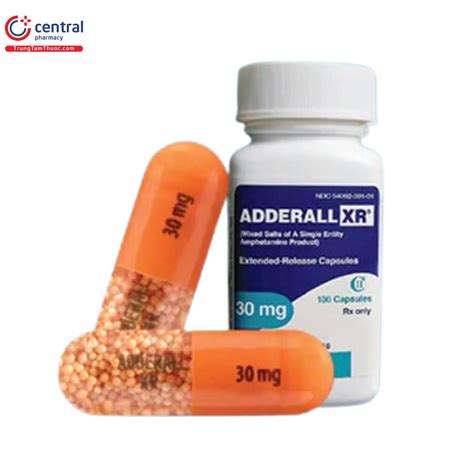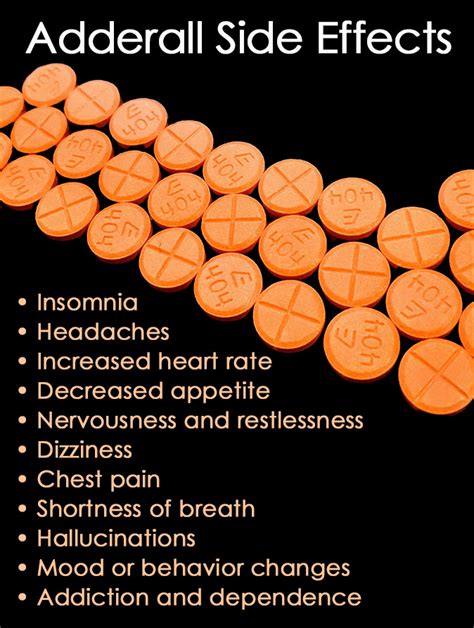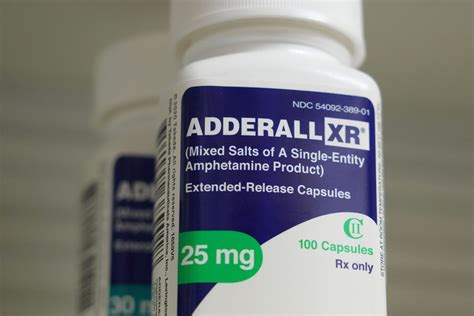Intro
Extended Release Adderall, also known as Adderall XR, is a prescription medication used to treat Attention Deficit Hyperactivity Disorder (ADHD) and narcolepsy. While it has been widely prescribed and used, there are some lesser-known facts about this medication that are essential to understand. In this article, we will delve into five facts about Extended Release Adderall, exploring its benefits, risks, and usage.
What is Extended Release Adderall?
Extended Release Adderall is a central nervous system stimulant that contains a combination of amphetamine and dextroamphetamine salts. These salts work together to increase the levels of certain neurotransmitters, such as dopamine and norepinephrine, in the brain. By doing so, they help improve focus, attention, and impulse control.

Fact #1: Extended Release Adderall is a Convenient Option for ADHD Treatment
One of the primary benefits of Extended Release Adderall is its convenience. Unlike the immediate-release version of Adderall, which requires multiple doses throughout the day, Adderall XR is taken once daily in the morning. This makes it easier for individuals with ADHD to maintain a consistent treatment regimen, reducing the likelihood of missed doses and improving overall treatment efficacy.
How Does Extended Release Adderall Work?
Extended Release Adderall works by releasing the active ingredients, amphetamine and dextroamphetamine, slowly over a period of several hours. This slow release helps maintain a steady level of the medication in the bloodstream, providing continuous symptom relief throughout the day.
Fact #2: Extended Release Adderall Can Have Serious Side Effects
While Extended Release Adderall can be effective in managing ADHD symptoms, it is essential to be aware of the potential side effects. Common side effects include:
- Insomnia
- Anxiety
- Dry mouth
- Increased heart rate
- Weight loss
In rare cases, more severe side effects can occur, such as:
- Seizures
- Allergic reactions
- Serotonin syndrome
- Heart problems

Fact #3: Extended Release Adderall Can Be Habit-Forming
Extended Release Adderall is a controlled substance, which means it has the potential to be habit-forming. Taking the medication as directed by a healthcare professional is crucial to minimizing the risk of dependence. Misusing or taking more than the prescribed dose can lead to physical dependence and addiction.
Risks of Misusing Extended Release Adderall
Misusing Extended Release Adderall can have serious consequences, including:
- Increased risk of overdose
- Severe side effects
- Dependence and addiction
- Interactions with other medications
Fact #4: Extended Release Adderall Can Interact with Other Medications
Extended Release Adderall can interact with other medications, including:
- Antidepressants
- Blood thinners
- Blood pressure medications
- MAOIs (monoamine oxidase inhibitors)
These interactions can increase the risk of side effects or reduce the effectiveness of the medication. It is essential to inform your healthcare professional about all medications, supplements, and vitamins you are taking before starting Extended Release Adderall.

Fact #5: Extended Release Adderall is Not Suitable for Everyone
Extended Release Adderall is not suitable for everyone, particularly:
- Children under 6 years old
- Pregnant or breastfeeding women
- Individuals with a history of substance abuse
- Those with certain medical conditions, such as high blood pressure, heart disease, or glaucoma
Your healthcare professional will assess your individual situation and determine whether Extended Release Adderall is a suitable treatment option for you.
Alternatives to Extended Release Adderall
If Extended Release Adderall is not a suitable option, there are alternative treatments available, including:
- Behavioral therapy
- Lifestyle changes
- Other medications, such as Ritalin or Vyvanse

In conclusion, while Extended Release Adderall can be an effective treatment for ADHD, it is essential to be aware of the potential risks and benefits. By understanding these five facts, you can make informed decisions about your treatment and work closely with your healthcare professional to achieve optimal results.
What is the difference between Adderall and Adderall XR?
+Adderall and Adderall XR are both central nervous system stimulants used to treat ADHD. The primary difference is that Adderall is an immediate-release medication, while Adderall XR is an extended-release medication.
Can I take Extended Release Adderall with other medications?
+It is essential to consult with your healthcare professional before taking Extended Release Adderall with other medications. Certain interactions can increase the risk of side effects or reduce the effectiveness of the medication.
Is Extended Release Adderall habit-forming?
+Yes, Extended Release Adderall is a controlled substance and can be habit-forming. Taking the medication as directed by a healthcare professional is crucial to minimizing the risk of dependence.
We hope this article has provided valuable insights into Extended Release Adderall. If you have any further questions or concerns, please do not hesitate to comment below or share this article with others.

